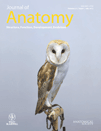
JOURNAL OF ANATOMY
Scope & Guideline
Advancing the Frontiers of Anatomical Science
Introduction
Aims and Scopes
- Anatomical Variations and Clinical Implications:
The journal frequently publishes studies on anatomical variations and their clinical significance, providing insights that can improve surgical techniques and patient care. - Advanced Imaging Techniques:
There is a consistent focus on utilizing advanced imaging methods, such as MRI and CT scans, to explore anatomical structures, which enhances understanding of human anatomy in both healthy and pathological states. - Integration of Anatomy in Medical Education:
The journal emphasizes the importance of anatomy in medical training, exploring innovative teaching methods and the use of cadaveric materials to enhance learning outcomes. - Experimental and Comparative Studies:
Research involving experimental models, particularly using animal studies to explore anatomical functions and pathologies, is a significant theme, contributing to translational research. - Multidisciplinary Approaches:
The journal supports interdisciplinary studies that connect anatomy with other fields such as physiology, pathology, and pharmacology, reflecting the integrative nature of modern medical science.
Trending and Emerging
- Application of 3D Imaging and Modeling:
There is an increasing trend in using 3D imaging and modeling techniques to study anatomical structures, which enhances the understanding of spatial relationships and can improve surgical planning. - Anatomy in the Context of Disease:
Research focusing on the anatomical basis of diseases, including studies on anatomical variations in patient populations with specific conditions, is on the rise, highlighting the relevance of anatomy in clinical settings. - Innovations in Anatomy Education:
Emerging themes in innovative teaching practices, including the use of technology and blended learning approaches in anatomy education, are being explored to enhance student engagement and learning outcomes. - Translational Research Approaches:
There is a growing interest in studies that connect anatomical research with clinical applications, emphasizing the importance of anatomical insights in understanding disease mechanisms and treatment strategies. - Environmental and Lifestyle Influences on Anatomy:
Recent publications are beginning to explore how environmental factors and lifestyle choices impact anatomical structures and variations, indicating a shift towards more holistic approaches in anatomical research.
Declining or Waning
- Traditional Cadaveric Studies:
While cadaveric studies have historically been a cornerstone of anatomical research, there seems to be a decline in purely descriptive cadaveric studies, possibly due to the increasing use of imaging technologies and less availability of cadaveric specimens. - Basic Morphometric Studies:
There is a noticeable reduction in the publication of basic morphometric studies that do not connect to clinical applications or advanced imaging, as the journal shifts towards more clinically relevant research. - Forensic Anatomy Studies:
The frequency of forensic anatomy studies has declined, suggesting a potential shift in focus towards more clinical and educational applications of anatomy, rather than forensic implications.
Similar Journals
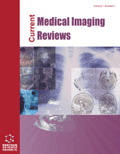
Current Medical Imaging
Bridging Technology and Patient Care in ImagingCurrent Medical Imaging is a reputable journal published by Bentham Science Publishers, specializing in the dynamic field of medical imaging, with a strong emphasis on both clinical applications and technological advancements. Established in 2007, the journal has made significant contributions to the fields of Internal Medicine and Radiology, consistently ranking in the Q3 quartile for these categories as of 2023. The journal's ISSN 1573-4056 and E-ISSN 1875-6603 ensure wide accessibility for scholarly communication, although it operates under a traditional access model. With its continuous publication from 2011 to 2024, Current Medical Imaging aims to bridge the gap between advanced imaging techniques and their practical application in patient care, making it indispensable for researchers, healthcare professionals, and students eager to stay at the forefront of innovations in imaging technology and clinical practice.

SURGICAL AND RADIOLOGIC ANATOMY
Advancing the Frontiers of Surgical KnowledgeSURGICAL AND RADIOLOGIC ANATOMY is a premier scholarly journal published by SPRINGER FRANCE, dedicated to advancing knowledge in the fields of anatomy, surgery, pathology, and radiology. With an ISSN of 0930-1038, this journal has steadily carved out its significance since its inception in 1986, offering a platform for researchers and professionals to disseminate their findings and insights. Ranking in the Q2 category for Anatomy, Surgery, and Pathology & Forensic Medicine, and Q3 in Radiology, this journal is recognized for its rigorous peer-review process and high-quality publications. The Scopus rankings further illustrate its impact within the medical community, positioning it favorably within its categories. Despite not being an open-access journal, it offers valuable contributions to existing literature and clinical practice, making it a vital resource for medical practitioners and students alike. The journal's commitment to providing a comprehensive exploration of surgical techniques and anatomical knowledge ensures that it remains an essential read for those seeking to enhance their expertise in these dynamic fields.
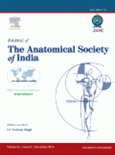
Journal of the Anatomical Society of India
Exploring the intricacies of human anatomy and beyond.The Journal of the Anatomical Society of India, established in 1960, is a key publication in the field of anatomy and pathology, published by Wolters Kluwer Medknow Publications. With an ISSN of 0003-2778 and an E-ISSN of 2352-3050, this journal serves as a vital platform for disseminating innovative research and advancements in anatomical sciences. Although it currently features a Q4 ranking in both the categories of Anatomy and Pathology and Forensic Medicine as of 2023, the journal aims to elevate scientific discussions and collaborations among researchers, professionals, and students. The impact factor highlights its relevance in the scientific community, although specific metrics are currently unavailable. Located in the dynamic hub of Mumbai, India, the journal encapsulates a commitment to enriching academic discourse while addressing the latest developments and breakthroughs in the field. Researchers looking for a valued resource within anatomy and related disciplines will find this journal an essential read.
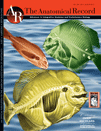
Anatomical Record-Advances in Integrative Anatomy and Evolutionary Biology
Connecting the Dots Between Anatomy and Evolution.Anatomical Record-Advances in Integrative Anatomy and Evolutionary Biology, an esteemed journal published by WILEY, serves as a pivotal platform for scholars in the fields of anatomy, biotechnology, ecology, evolutionary biology, and histology. With an ISSN of 1932-8486 and an E-ISSN of 1932-8494, this journal has demonstrated its academic rigor by maintaining a Q2 ranking across multiple relevant categories, including Anatomy and Biotechnology, and consistently achieving a high Scopus ranking in its respective fields. Its scope, covering integrative approaches to anatomical research and evolutionary studies, fosters interdisciplinary collaboration and innovation. Researchers and practitioners can access the journal through various open-access options, ensuring that groundbreaking findings are disseminated widely. As a vital resource for advancing knowledge and exploring emerging trends, this journal greatly contributes to the understanding of biological systems and evolutionary processes, making it an essential read for those dedicated to pushing the boundaries of their respective disciplines.

INTERNATIONAL JOURNAL OF MORPHOLOGY
Unveiling the Secrets of Structural DiversityThe INTERNATIONAL JOURNAL OF MORPHOLOGY is a distinguished publication dedicated to the field of anatomy, significantly contributing to the scholarly discourse within this essential area of medical science. Published by the SOC CHILENA ANATOMIA and located in Chile, this journal aims to disseminate groundbreaking research that explores the structural aspects of organisms, from comparative anatomy to developmental processes. With an H-index reflecting its growing impact, the journal has achieved a Q3 ranking in the category of Anatomy according to the 2023 metrics, positioning it among the competitive resources available to the scientific community. Researchers and professionals engaging with this journal can expect to encounter rigorous studies, insightful reviews, and innovative methodologies. Though not strictly open access, the journal remains pivotal for those keen on advancing their understanding of morphological structures and their implications in various fields. With convergence ongoing from 2006 to 2024, the INTERNATIONAL JOURNAL OF MORPHOLOGY is poised to further solidify its role as a vital source of knowledge for anatomy enthusiasts and experts alike.

BMC Zoology
Empowering researchers with cutting-edge insights.BMC Zoology, published by BMC, is a distinguished open-access journal that has been advancing the field of zoological research since its inception in 2016. With an impressive Q2 ranking in both Animal Science and Zoology categories as of 2023, the journal occupies a significant position in the academic landscape, engaging a global readership dedicated to the exploration of animal biology. Based in the United Kingdom, BMC Zoology prides itself on providing a platform for innovative research, fostering collaboration among scientists, and facilitating access to high-quality scholarly articles. Researchers and practitioners in zoology can benefit from its extensive repository of articles that span various areas including conservation, ecology, and evolutionary biology. As an essential resource for scholars and students alike, BMC Zoology commits to enhancing the dissemination of knowledge in the zoological sciences through its open-access model, ensuring widespread access to cutting-edge research findings.

ZOOMORPHOLOGY
Bridging the gap between morphology and biology.ZOOMORPHOLOGY, published by SPRINGER, stands as a pivotal journal in the fields of Animal Science, Zoology, and Developmental Biology. Since its inception in 1980, this journal has been dedicated to advancing the understanding of animal morphology and the evolutionary adaptations of various species. With an ISSN of 0720-213X and an E-ISSN of 1432-234X, ZOOMORPHOLOGY boasts a Q2 ranking in Animal Science and Zoology and is recognized within the Q4 category in Developmental Biology as of 2023, reflecting its impactful contributions to the scientific community. The journal is indexed in Scopus, where it ranks #224 out of 490 in Animal Science and Zoology, and #66 out of 82 in Developmental Biology, positioning it as a resource of considerable significance for researchers and professionals in these disciplines. Although ZOOMORPHOLOGY currently operates on a traditional access model, it continues to foster scholarly communication and inspire future researchers through rigorous peer-reviewed articles that explore the intricate relationships between form and function in the animal kingdom. With a commitment to excellence and innovation, ZOOMORPHOLOGY remains a vital platform for publishing high-quality research that drives forward our knowledge in morphology and evolutionary biology.
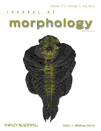
JOURNAL OF MORPHOLOGY
Unraveling the Complexity of Anatomy and DevelopmentEstablished in 1887, the Journal of Morphology is a pioneering publication in the field of morphology, specializing in the anatomical and developmental biology of diverse organisms. Published by Wiley, this journal features high-quality research that spans multiple disciplines, including animal science and zoology, with a current ranking of Q2 in these areas. Although it lacks an open-access option, the journal is committed to advancing knowledge and facilitating scientific communication among professionals in developmental biology, as indicated by its ongoing contributions since its convergence years and up to 2024. With an impact factor that reflects its importance in the scientific community, the Journal of Morphology is a vital resource for researchers, professionals, and students seeking to understand complex morphological processes and their implications in modern science. Its dedication to publishing rigorous, peer-reviewed articles makes it an indispensable asset in the exploration of life's intricacies.
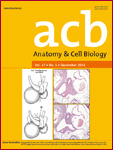
Anatomy & Cell Biology
Advancing Knowledge in Anatomy and Cell BiologyAnatomy & Cell Biology is a prominent academic journal published by MEDRANG, dedicated to advancing the fields of anatomy and cell biology through the dissemination of high-quality research. With an ISSN of 2093-3665 and an E-ISSN of 2093-3673, this journal serves as a vital resource for researchers and professionals interested in understanding the intricate processes of human and model organism anatomy and cellular functions. Based in South Korea, Anatomy & Cell Biology has gained recognition with a 2023 Category Quartile ranking of Q2 in Anatomy and continues to foster academic collaboration and innovation since its inception in 2014. With a focus on interdisciplinary studies, the journal publishes essential findings that contribute to the realms of histology, developmental biology, and neuroscience. Although the journal operates on a subscription model, it remains committed to providing valuable insights and a platform for scholarly dialogue among those in the biological sciences. Researchers and students aiming to remain at the forefront of these dynamic fields will find Anatomy & Cell Biology an indispensable part of their academic journey.
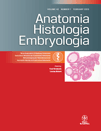
ANATOMIA HISTOLOGIA EMBRYOLOGIA
Pioneering Research in Veterinary and Medical SciencesANATOMIA HISTOLOGIA EMBRYOLOGIA, published by Wiley, is a well-regarded journal that serves as a vital resource in the field of anatomy and histology, with a particular emphasis on embryological studies. Established in 1972, this journal fosters cutting-edge research and discussions that deepen our understanding of the intricate relationships between structure and function across various species, while also addressing the parallels within veterinary and medical contexts. Though currently not open access, the journal maintains a significant impact within its scope, evidenced by its strong performance in Scopus rankings, particularly in the veterinary sciences, where it stands at rank #81 out of 194. With its dedicated focus on progressive scientific inquiry and publication regularly until 2024, the journal is committed to advancing knowledge and providing a platform for scholars, researchers, and practitioners alike. ANATOMIA HISTOLOGIA EMBRYOLOGIA is pivotal for those aiming to engage with the latest findings and methodologies in the fields of medicine and veterinary science, ensuring it remains an essential addition to any academic library.